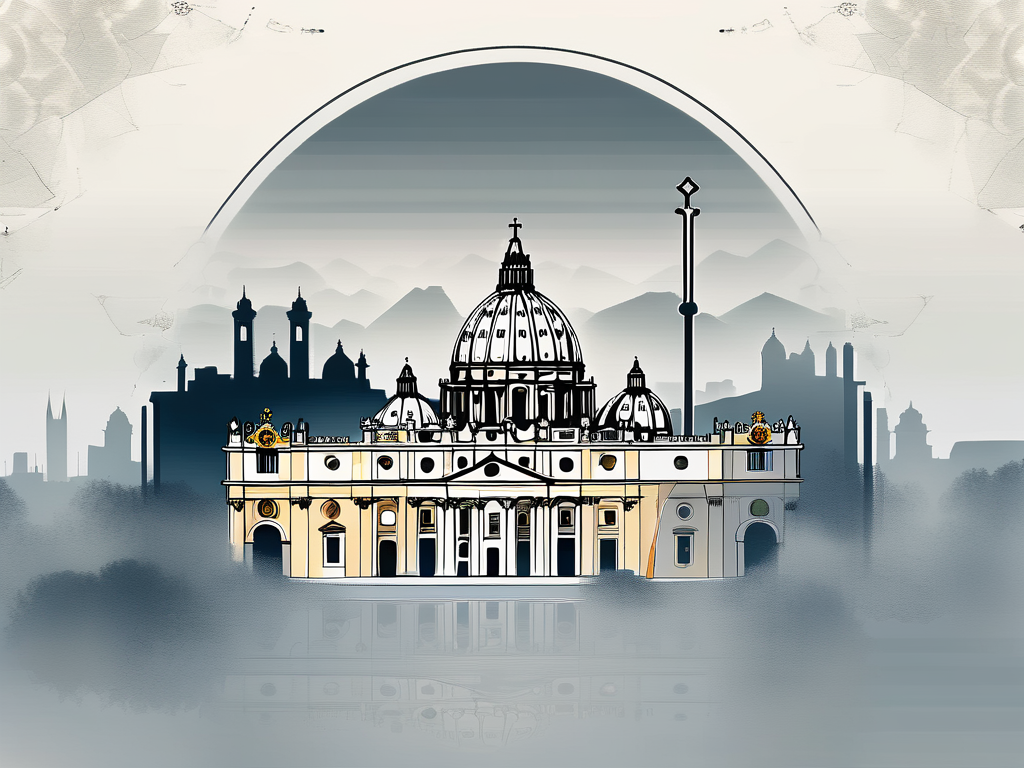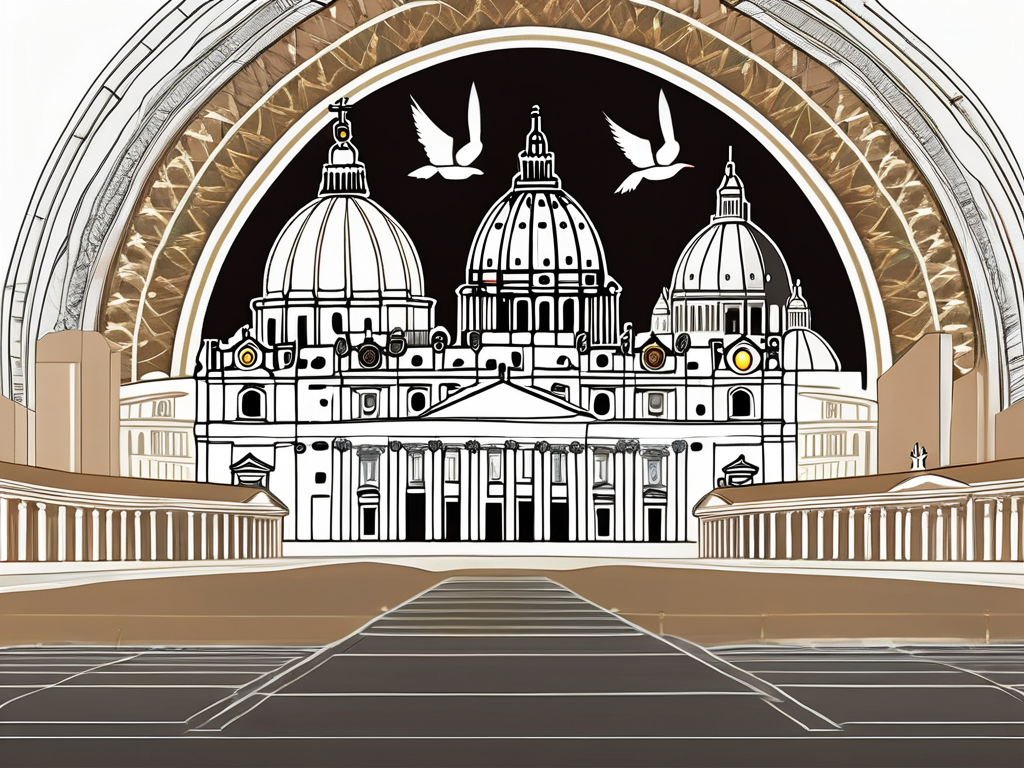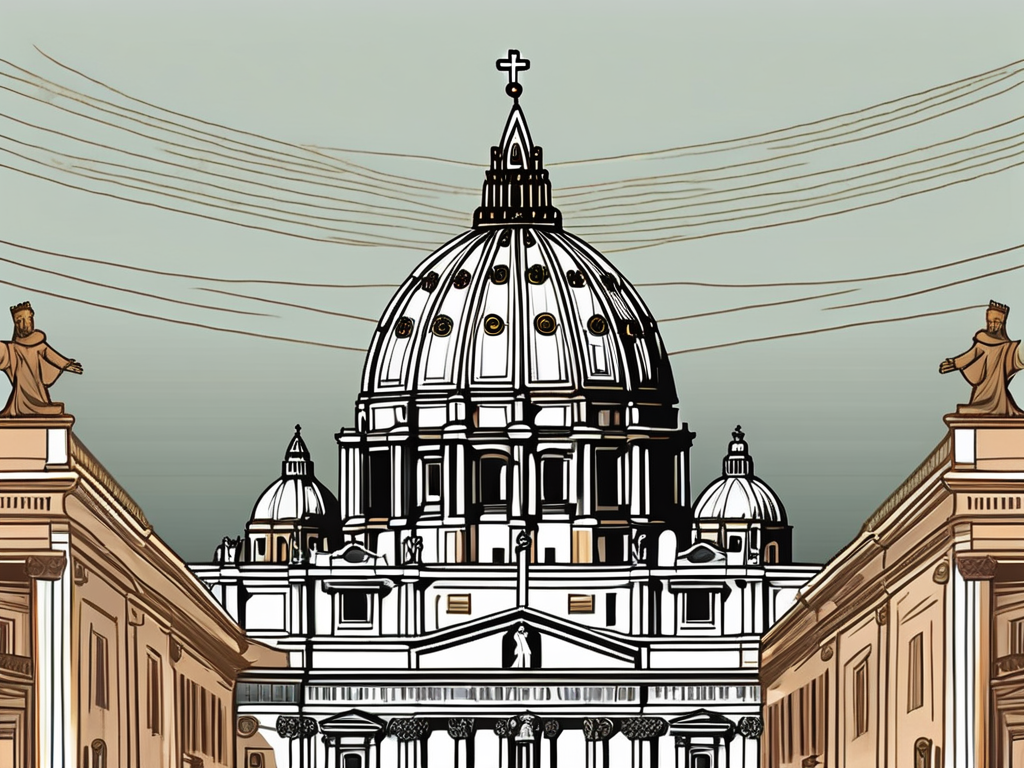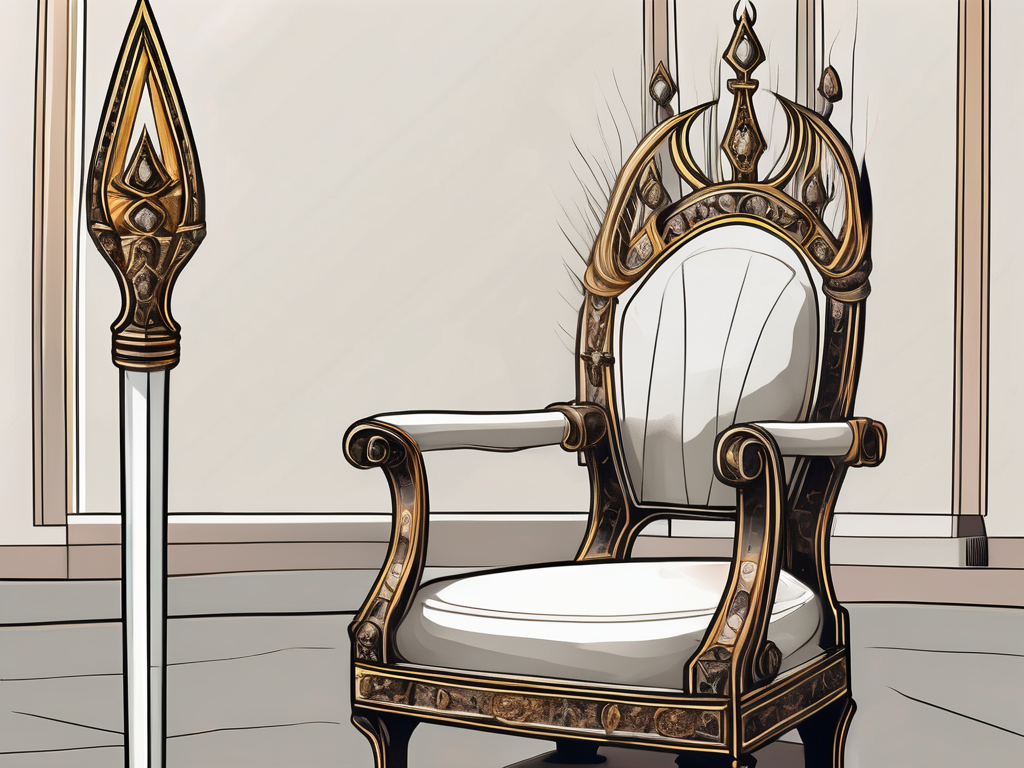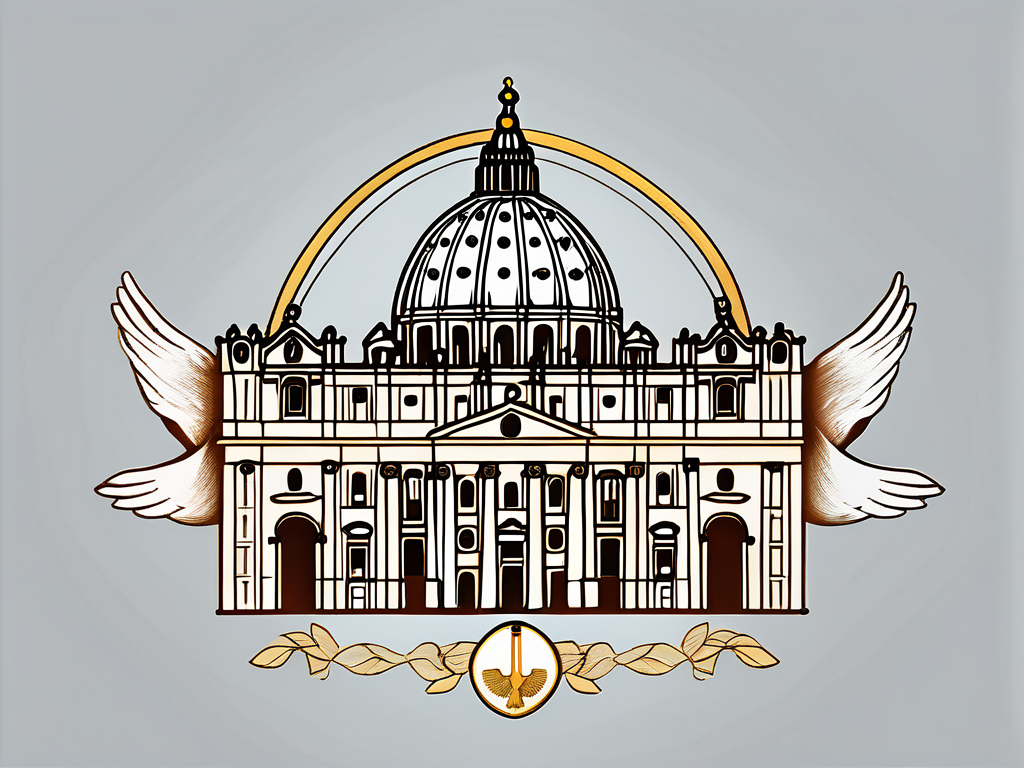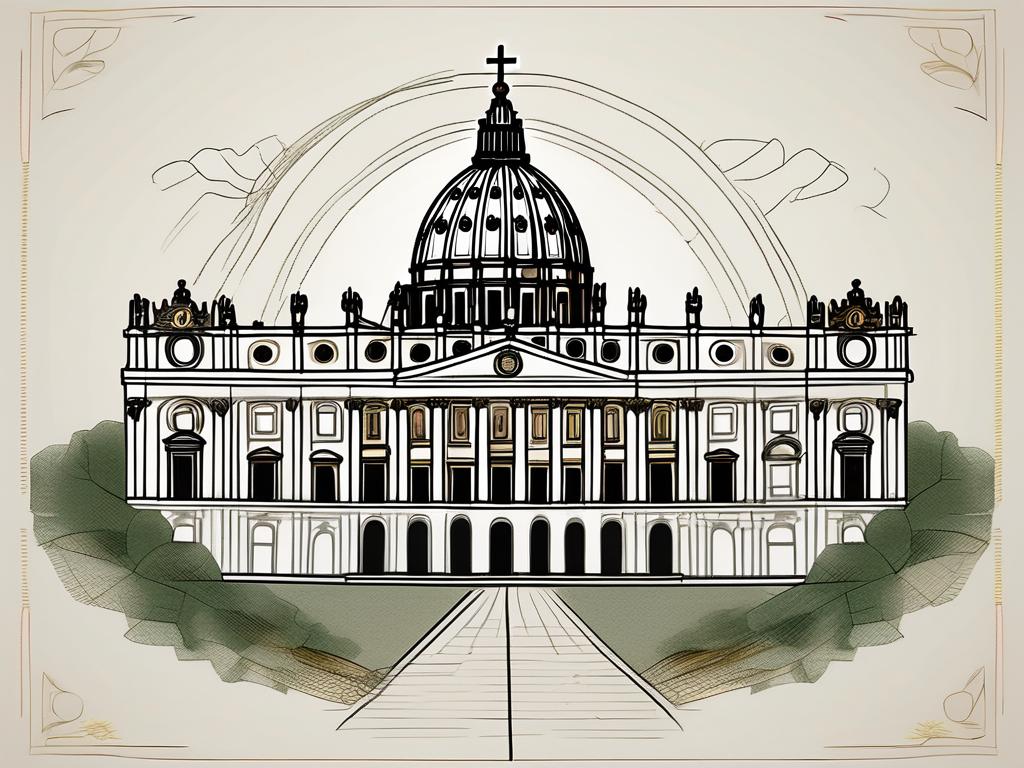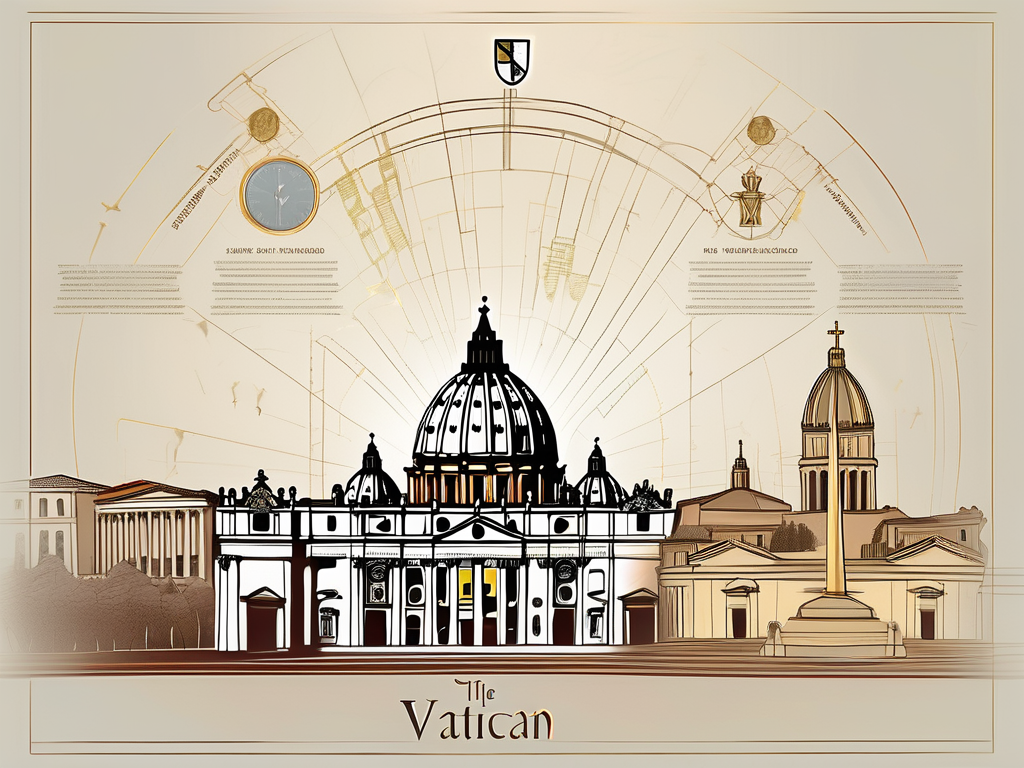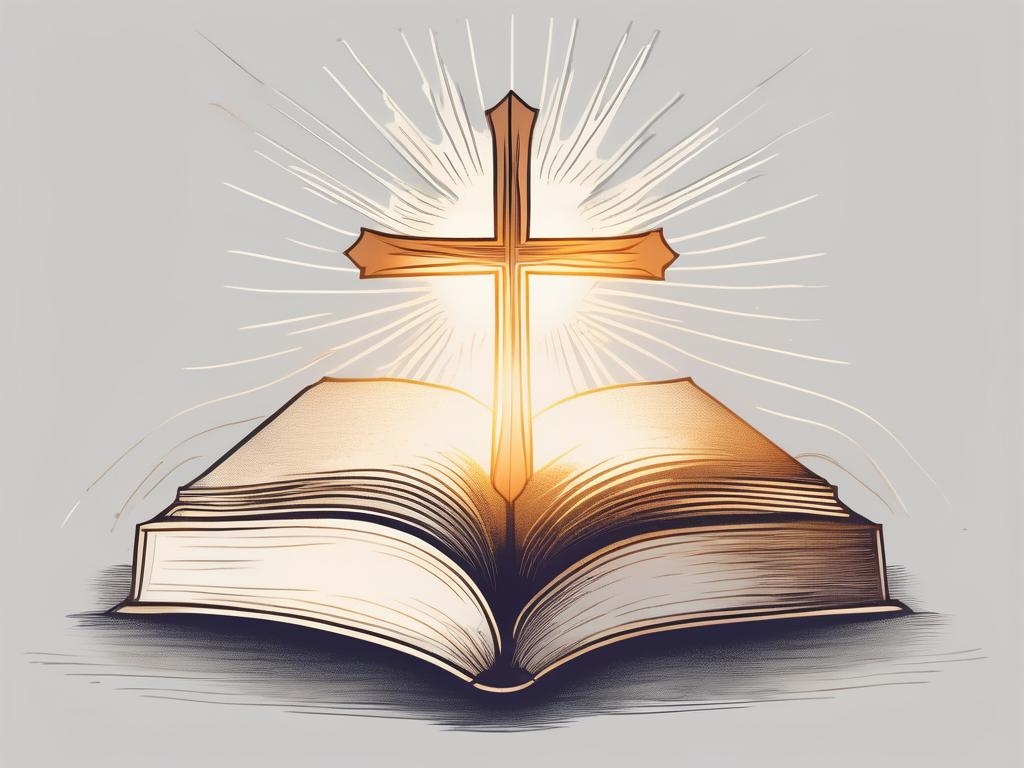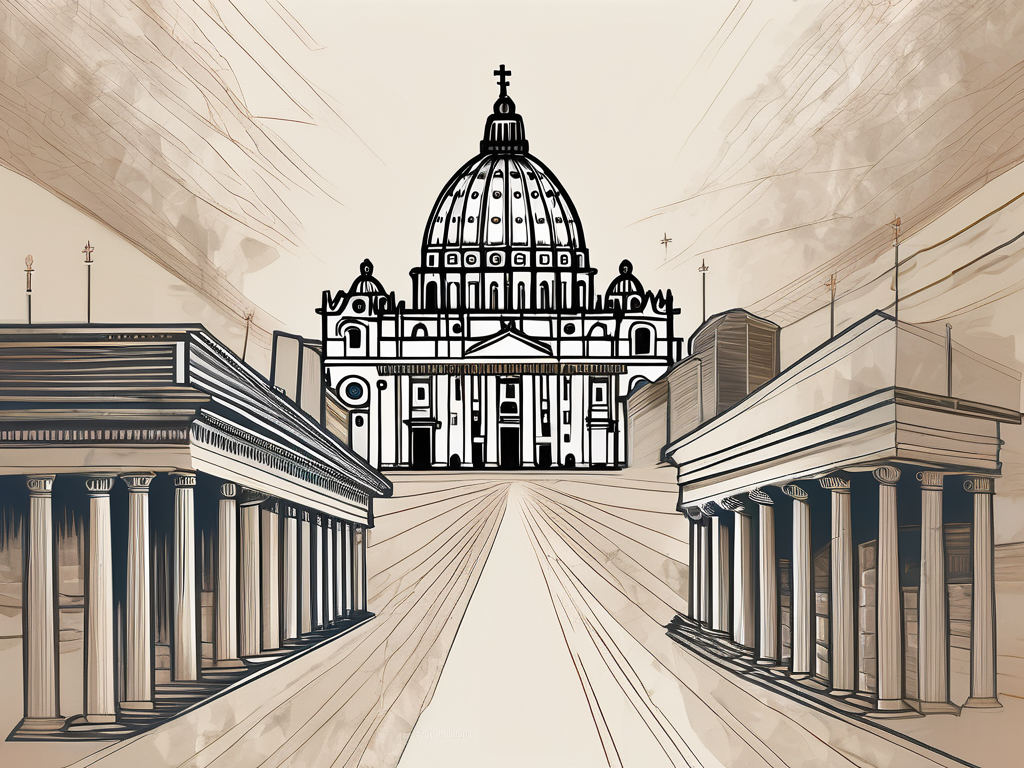Pope Lando is a name that may not be as commonly known as some of his predecessors or successors, but his brief yet significant reign had a lasting impact on the Catholic Church. In this article, we will delve into the enigmatic life of Pope Lando and attempt to unravel the mysteries surrounding his papacy.
The Brief Yet Significant Reign of Pope Lando
Pope Lando’s time as the leader of the Catholic Church was short-lived. From his ascendancy to the papacy in 913 to his untimely death in 914, he faced numerous challenges and made some crucial decisions that shaped the course of his papacy.
The Unexpected Rise to Papacy
Lando’s rise to the papacy was unexpected, even by his contemporaries. At a time when power struggles and invasions plagued Italy, he was chosen as Pope amidst political unrest. The circumstances surrounding his election remain a mysterious chapter in papal history.
Legend has it that Lando, a humble monk known for his piety and wisdom, was not even considered a serious contender for the papacy. However, his reputation for fairness and his deep understanding of theology caught the attention of the cardinals. In a surprising turn of events, they elected him as the successor to Pope Anastasius III.
As news of Lando’s election spread, the people of Rome were divided in their reactions. Some hailed him as a beacon of hope in troubled times, while others expressed skepticism about his ability to navigate the treacherous political landscape. Nevertheless, Lando assumed the papal throne with a determination to lead the Church with integrity and strength.
Key Decisions and Actions During His Reign
During his short tenure, Pope Lando made significant decisions that had far-reaching consequences for the Catholic Church. He sought to strengthen the Church’s relationship with the Carolingian Dynasty and played a crucial role in political negotiations, striving to maintain stability in a tumultuous era.
Recognizing the importance of diplomacy, Pope Lando embarked on a series of diplomatic missions to forge alliances with various rulers and ensure the Church’s influence in secular affairs. His efforts were not in vain, as he successfully mediated conflicts and prevented further bloodshed in several regions.
Furthermore, Pope Lando was a staunch advocate for administrative reforms within the Church. He understood that a well-organized and efficient hierarchy was crucial for the Church to fulfill its mission. With this in mind, he implemented measures to streamline the governance of the Church, ensuring that resources were allocated effectively and corruption was rooted out.
His commitment to reform was not without controversy, however. Some members of the clergy resisted his efforts, fearing a loss of power and influence. Yet, Pope Lando remained steadfast in his conviction that the Church needed to adapt to the changing times and address the pressing issues of the day.
Despite the challenges he faced, Pope Lando’s reign left a lasting impact on the Catholic Church. His dedication to diplomacy and administrative reform set a precedent for future popes, shaping the Church’s approach to governance and its role in the political landscape.
Tragically, Pope Lando’s papacy was cut short by his untimely death in 914. His passing was mourned by many, who recognized the potential he had shown in his brief time as Pope. Although his reign was brief, Pope Lando’s legacy lives on, reminding us of the importance of leadership and reform in times of adversity.
The Mystery Surrounding Pope Lando’s Origin
While much is known about Pope Lando’s papacy, his origins remain shrouded in mystery. Scholars and historians have attempted to uncover the truth about his birthplace and family background, but definitive answers have remained elusive.
However, despite the lack of concrete evidence, various theories and controversies have emerged, adding to the intrigue surrounding Pope Lando’s mysterious origins.
Controversies Regarding His Birthplace
One of the main controversies surrounding Pope Lando is the debate over his birthplace. Some argue that he hailed from Italy, pointing to certain linguistic and cultural influences evident in his papal decrees. On the other hand, there are those who claim he was of Germanic origin, citing certain physical features and naming conventions that were prevalent in that region during the time of his papacy.
These conflicting theories have sparked intense debate among historians and scholars, with each side presenting compelling arguments to support their claims. The lack of concrete evidence has only fueled speculation and further deepened the mystery surrounding his identity.
The Unusual Name ‘Lando’: Its Significance and Speculations
Pope Lando’s name itself has sparked curiosity and speculation. The name ‘Lando’ is unique and uncommon in papal history, leading to theories about its possible meaning and symbolism.
Some posit that it could be a reference to his humble roots, suggesting that he may have come from a modest background and rose to prominence through his dedication and virtue. Others speculate that the name ‘Lando’ might signify a particular virtue associated with his character, such as wisdom, compassion, or strength.
Despite these speculations, the true meaning and significance behind Pope Lando’s name remain a subject of debate and interpretation. It serves as yet another enigmatic aspect of his persona, adding to the allure and fascination surrounding his mysterious origins.
The Political and Religious Climate of Pope Lando’s Time
To fully understand the challenges faced by Pope Lando, it is essential to examine the political and religious climate of the 10th century. This period was marked by power struggles, invasions, and rivalries, all of which impacted the landscape within which he operated.
The 10th century was a tumultuous time in Europe, with political power constantly shifting and religious tensions simmering beneath the surface. Pope Lando found himself at the center of this maelstrom, tasked with navigating the treacherous waters of both politics and religion.
The Role of the Church in the 10th Century
During Pope Lando’s reign, the Church played a crucial role in political affairs. It provided stability and acted as an intermediary in negotiations between conflicting factions. The challenges faced by the Church mirrored those of the broader society, and Pope Lando sought to navigate these complexities while upholding the values of the Catholic Church.
The Church, as an institution, wielded significant influence over the ruling powers of the time. It was not uncommon for monarchs and emperors to seek the approval and blessing of the Pope before embarking on military campaigns or making important decisions. Pope Lando, aware of this influence, carefully balanced the demands of his position with the need to maintain the integrity and independence of the Church.
Influential Figures and Rivalries During His Papacy
Pope Lando’s papacy unfolded against the backdrop of influential figures and rivalries. His interactions with prominent leaders of the time, such as Emperor Berengar I and Bishop Ratold of Verona, shaped the course of events and influenced his decision-making process. The dynamics between these figures continue to elicit fascination and shed light on the intricacies of his papacy.
Emperor Berengar I, a powerful ruler known for his ambition and military prowess, often clashed with Pope Lando over matters of authority and control. Their relationship was marked by a delicate balance of cooperation and conflict, as both men sought to assert their influence and protect their respective interests.
Bishop Ratold of Verona, on the other hand, was a close ally of Pope Lando. Together, they worked to promote the interests of the Church and maintain its influence in the region. Their partnership was not without its challenges, however, as they faced opposition from rival factions within the Church hierarchy.
These rivalries and alliances within the political and religious spheres added layers of complexity to Pope Lando’s papacy. He had to carefully navigate the intricate web of relationships, ensuring that the Church’s interests were protected while also maintaining a semblance of peace and stability in the broader society.
In conclusion, the political and religious climate of Pope Lando’s time was a volatile and challenging one. Power struggles, invasions, and rivalries shaped the landscape within which he operated, and he had to deftly maneuver through these complexities. The role of the Church in the 10th century was pivotal, and Pope Lando’s interactions with influential figures and rivalries further highlighted the intricacies of his papacy.
The Legacy of Pope Lando
Pope Lando’s legacy extends beyond the years of his papacy. Despite its brevity, his reign left an indelible mark on subsequent popes and the Catholic Church as a whole. Understanding his influence is key to comprehending the development of the Church and its continued evolution.
His Influence on Subsequent Popes
Pope Lando’s reign influenced the actions and policies of his successors. His administrative reforms and diplomatic efforts set a precedent for future popes, shaping the very nature of the papacy itself. The lessons learned from his leadership continue to inform the decisions of popes to this day.
The Impact of His Decisions on the Modern Church
Though his papacy occurred over a thousand years ago, Pope Lando’s decisions continue to resonate within the modern Catholic Church. The reforms he championed and the crises he faced offer valuable insights into how the Church responds to challenges and adapts over time. His papacy serves as a reminder of the enduring nature of the Church’s mission.
Theories and Debates About Pope Lando’s Papacy
Despite the passage of time, Pope Lando’s papacy remains the subject of ongoing theories and debates. Historians and scholars continue to analyze his actions and policies, seeking to uncover hidden truths and reinterpret his legacy for contemporary audiences.
Scholarly Interpretations of His Reign
Different scholars offer varying interpretations of Pope Lando’s reign. Some emphasize his political maneuvering and diplomatic acumen, while others focus on the religious reforms he initiated. These diverse perspectives contribute to a more nuanced understanding of his papacy and stimulate further research.
Unanswered Questions and Areas for Further Research
Despite the efforts of dedicated historians, several questions regarding Pope Lando’s papacy remain unanswered. The mysteries surrounding his birth, his motivations, and the impact of his actions offer fertile ground for further research. Unraveling these enigmas will not only shed light on his legacy but also deepen our understanding of this fascinating period in history.
In conclusion, Pope Lando’s brief yet significant papacy continues to captivate the imagination of historians and enthusiasts alike. The mysteries surrounding his rise to power, his actions as Pope, and his lasting influence on the Catholic Church make his story one that is worthy of exploration. By unraveling the mysteries of his papacy, we can gain valuable insights into the inner workings of the Church and the complex nature of leadership in challenging times.
